

Does CBD Show Up on Drug Tests?
The popularity of CBD and its products is gradually increasing with no signs of slowing down in the UK. As a result, the surge has led to an overgrown CBD market, with the Brits coming up as the second largest consumers of CBD in the world.
However, as the use of cannabinoid products is widespread globally, so is the need to know about its interaction with drug tests. This especially arises from the increasing multitudes turning to the hemp plant product for its therapeutic properties.
Are you subject to drug testing because of the nature of your job, sports or any other activities? There may be no straightforward answer for whether CBD can show up on drug tests, but read on to find out more.
What is CBD?
CBD, cannabidiol, is a chemical compound found in cannabis plants. CBD is one of the several cannabinoids that naturally occur in the cannabis plants. However, unlike its close associate, THC, cannabis has no psychoactive effects that are readily present in THC.
Why not also read: Can Mushrooms Cause Diarrhea?
Instead, CBD is known for its therapeutic effects that support general well-being. However, due to its extraction from the hemp plant, a type of cannabis with low THC, CBD has varying legal status from one country to another.
Types of CBD Products
Different CBD products may directly or indirectly influence drug tests as they often contain varying levels of THC. However, the UK’s standard for CBD products is that they should contain no more than 0.2% THC. Some of these products are manufactured differently, so you must buy all CBD products from reputable manufacturers.
Here are the common types of CBD products
CBD Isolate contains pure CBD with no detectable THC, so it is highly unlikely to result in a positive drug test. Full Spectrum CBD contains various amounts of cannabinoid compounds that may include trace amounts of THC (not more than 0.2% in the UK). Despite the low amounts of THC, the usage habits of full-spectrum CBD products may result in a positive detection, especially if the full-spectrum CBD is consumed in high dosages.
Broad Spectrum CBD is almost similar to full-spectrum CBD but with the THC content removed during extraction. This, therefore, should not result in a positive drug test.
How do Drug Tests Work
It is important to note that drug tests vary in intensity and may be influenced by factors such as individual metabolism, CBD dosage and the frequency of use.
So, the drug tests work by detecting the presence of CBD in the body. The common types of drug tests include:
Urine Drug Tests
Urine tests can detect drug use over the past few days or weeks, depending on the dosage. What happens is a urine sample is collected from the individual user, and then different techniques are used to check for CBD in the stored fat cells excreted through the urine.
However, individuals vary, and so the detection rate varies as well. A drug test is declared positive when the metabolite excreted in urine (THC-COOH) exceeds 50 ng/ml.
Blood Tests
Blood tests are believed to be quite sensitive and can detect THC usage within a few hours to a few days. A blood sample is collected and then tested for THC or its metabolites in the bloodstream during the test.
Other tests include Hair and saliva tests, which are less likely to be affected by trace THC in CBD products. However, to avoid the detection of CBD in drug tests, it is important to stop using CBD about 7 days before the test.
Does CBD Show up in Drug tests?
Whether CBD shows up in drug tests or not is dependent on several factors, including:
THC Content in the CBD Products
CBD products contain a wide range of compounds, which include trace amounts of THC. However, in line with the UK’s CBD standards, the THC content in these products must be below 0.2% for them to be legally sold in the UK.
However, while the trace THC levels are unlikely to produce any psychoactive effects, they can be detected in a drug test if consumed regularly in high dosages.
Consumption Method
The method you consume CBD products can impact its detection in a drug test. You can take CBD in different ways, from vaping or smoking to sublingual and topical administration. The main issue with the administration method in this case is how fast the CBD extracts can get to the bloodstream. Most people, for instance, like vaping or smoking these products because of the fast onset of effects. These, however, compared to many other methods, may increase the risk of detection because the cannabinoids get to the bloodstream faster.
However, the overall risk of CBD detection remains relatively low for all consumption methods if you can choose products that comply with the UK’s legal THC limits.
Dosage and Frequency
As much as CBD products are regulated in the UK to 0.2% THC, higher dosage and frequent use can increase the risk of THC accumulation in the body. Depending on the detection window, this may increase the likelihood of a positive CBD drug test from the gradual buildup of THC metabolites in the body tissues.
Individual Metabolism
Your body composition plays a key role in how long it can metabolise the cannabinoid compounds. This, therefore, determines how much THC can remain detectable. People whose bodies have slower metabolic rates are likely to have extended detection windows compared to those whose bodies metabolise THC faster.
The metabolic variety helps in understanding that drug tests can be quite individualised, with some people being more susceptible to easy detection due to their metabolic rates. To understand this much better, look at how fast your body reacts after consuming CBD products.
If you have almost fast effects of the CBD extract, you may have a faster metabolic rate, although this largely depends on the consumption method. On the other hand, a slower onset of the CBD effects may tempt you to consume more CBD products, increasing the piling THC amounts in the body, a fact that is more likely to be detected on the drug test.
Type of Drug Test
Different drug tests have varying levels of sensitivity and detection windows. So, the kind of drug test used may also influence the ability to detect CBD usage in an individual. Urine tests, for instance, are the most accurate, with a detection window of several days to a few weeks of consistent usage of CBD products.
Blood tests, on the other hand, have shorter windows of about a few hours to a few days. This means CBD is highly unlikely to be detected in a blood test, especially if the product is used infrequently or in moderation.
How to Minimise the Risk of Testing Positive
CBD use may result in a positive test if you are exposed to secondhand smoke of marijuana or in case of wrong labelling of THC content on the product label. This may also be the case if there is a probability of cross-contamination during CBD manufacturing.
There are, however, a few ways you can reduce the risk of testing positive, including;
Firstly, you must confirm the product THC content labelling with third-party lab reports. Reputable manufacturers will always conduct a third-party lab test for their products to ensure the THC levels align with the legal THC limits.
Secondly, you can use CBD Isolate or Broad Spectrum CBD products with THC compounds removed or reduced to undetectable levels. You may also need to moderate your use of CBD to avoid piling trace THC contents in the body.
Finally, it is advisable that you stay hydrated and engage in regular physical activity to help increase your body’s metabolic rate of the cannabinoid compounds.
In conclusion, the question of whether CBD can appear in a drug test is complex, as several factors are at play. However, if you can watch out for your dosages, buy CBD products from reputable sources, and confirm results from third-party lab tests, you may help reduce the risk of CBD showing up in a drug test.
-

-
In stockOriginal price £25.00 - Original price £139.99Original price £0.00£25.00 - £139.99£25.00 - £139.99Current price £25.00
Earn 312 reward points
Orange County CBDBrought to you straight from the Sunshine State, Orange County's CBD oil combines full-spectrum, premium cannabinoids with natural terpenes to brin...
View full detailsOriginal price £25.00 - Original price £139.99Original price £0.00£25.00 - £139.99£25.00 - £139.99Current price £25.00Earn 312 reward points
-
Low stockOriginal price £19.99 - Original price £100.00Original price £0.00£19.99 - £100.00£19.99 - £100.00Current price £19.99
Earn 250 reward points
CBD by British CannabisIntroducing the new CBD Cannabis Oil from CBD by British Cannabis. This 100% Cannabis oil has been developed to be the best tasting most premium CB...
View full detailsOriginal price £19.99 - Original price £100.00Original price £0.00£19.99 - £100.00£19.99 - £100.00Current price £19.99Earn 250 reward points
-
In stockOriginal price £25.00 - Original price £25.00Original price £0.00£25.00£25.00 - £25.00Current price £25.00
Earn 312 reward points
CBD FXExperience the natural benefits of CBDfx Hemp Tincture, crafted with high-quality, pure hemp-derived CBD and MCT oil for optimum absorption and e...
View full detailsOriginal price £25.00 - Original price £25.00Original price £0.00£25.00£25.00 - £25.00Current price £25.00Earn 312 reward points
-
In stockOriginal price £19.99 - Original price £19.99Original price £0.00£19.99£19.99 - £19.99Current price £19.99
Earn 250 reward points
CBD FXExperience the natural benefits of CBDfx Hemp Tincture, crafted with high-quality, pure hemp-derived CBD and MCT oil for optimum absorption and ef...
View full detailsOriginal price £19.99 - Original price £19.99Original price £0.00£19.99£19.99 - £19.99Current price £19.99Earn 250 reward points
-
Low stockOriginal price £29.99 - Original price £149.99Original price £29.99 - Original price £149.99Original price £29.99£26.99 - £134.99£26.99 - £134.99Current price £26.99
Earn 337 reward points
Naturecan CBDBroad Spectrum 100% Natural Oil By Naturecan CBD is a high quality broad spectrum CBD oil produced from organically grown US hemp manufactured in t...
View full detailsOriginal price £29.99 - Original price £149.99Original price £29.99 - Original price £149.99Original price £29.99£26.99 - £134.99£26.99 - £134.99Current price £26.99Earn 337 reward points
Save up to 10% -
In stockOriginal price £64.99 - Original price £160.00Original price £0.00£64.99 - £160.00£64.99 - £160.00Current price £64.99
Earn 812 reward points
Supreme CBDSupreme CBD full spectrum oil provides the maximum CBD advantages and is available in three strong variants: 1500mg, 3000mg, and 6000mg. This full ...
View full detailsOriginal price £64.99 - Original price £160.00Original price £0.00£64.99 - £160.00£64.99 - £160.00Current price £64.99Earn 812 reward points







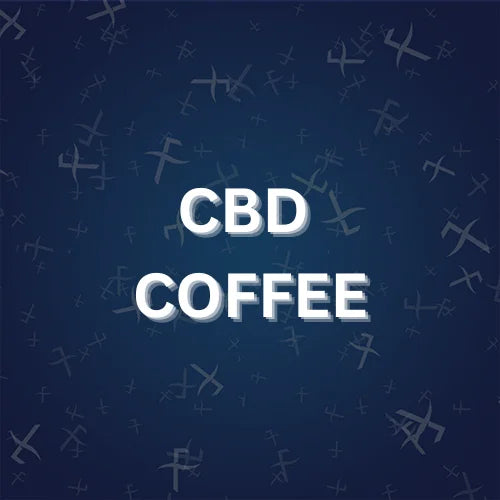


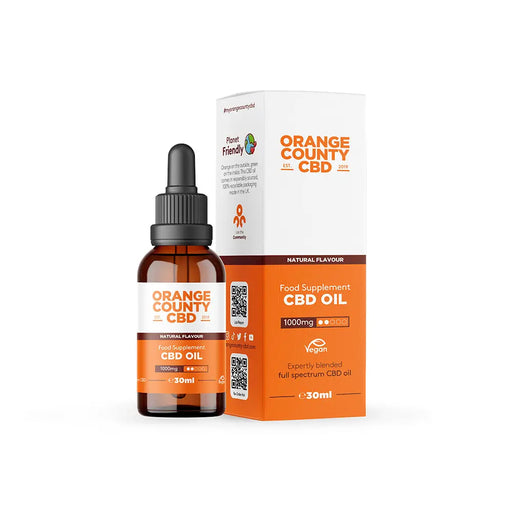
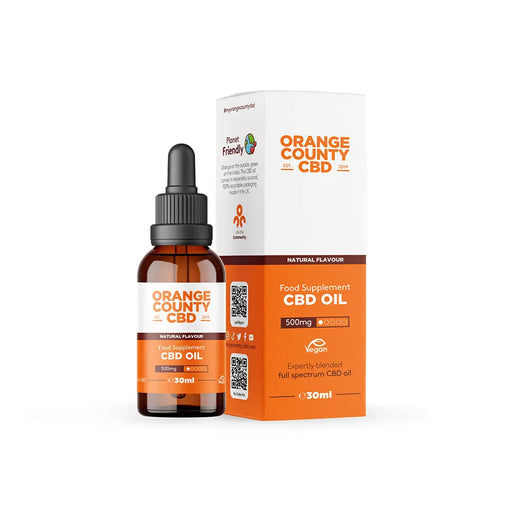
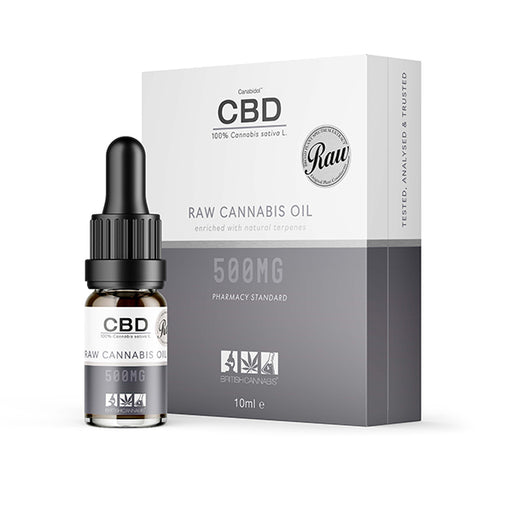
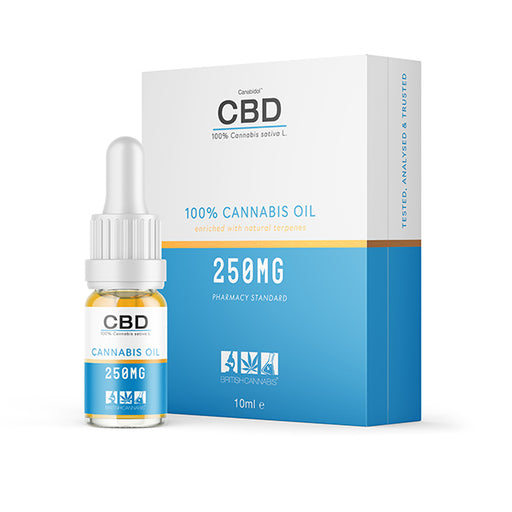


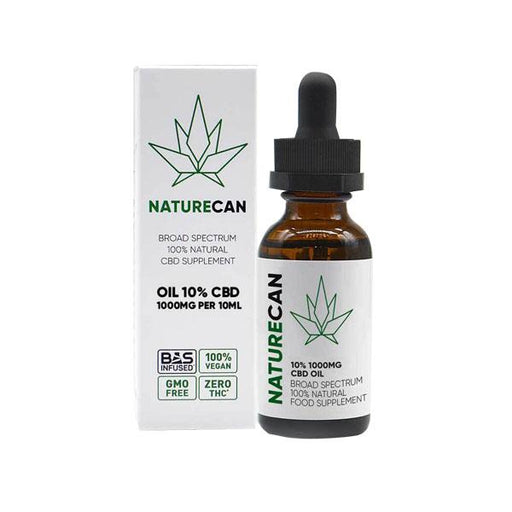
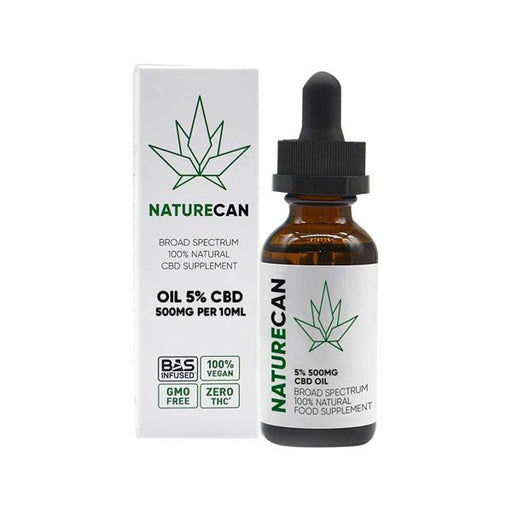


Leave a comment